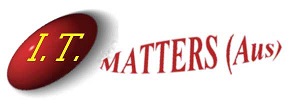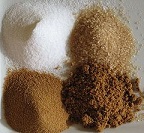

Sugar: content limited to what we believe we need to know about sugar in our daily life, based on our experience and readings.
- What is sugar?
- What is the purpose of eating an adequate level of sugar?
- What is a reasonable daily intake of sugar?
- In our experience ...
All words below in italic are quoted from the sugar topic in wikipedia unless otherwise stated.
Sugar is the generic name for sweet-tasting, soluble carbohydrates, many of which are used in food. The various types of sugar are derived from different sources. Simple sugars are called monosaccharides and include glucose (also known as dextrose), fructose, and galactose. "Table sugar" or "granulated sugar" refers to sucrose, a disaccharide of glucose and fructose. In the body, sucrose is hydrolysed into fructose and glucose.
>> access the Wikipedia resource
Sugar is the generic name for sweet-tasting, soluble carbohydrates, many of which are used in food. The various types of sugar are derived from different sources. Simple sugars are called monosaccharides and include glucose (also known as dextrose), fructose, and galactose. "Table sugar" or "granulated sugar" refers to sucrose, a disaccharide of glucose and fructose. In the body, sucrose is hydrolysed into fructose and glucose.
>> access the Wikipedia resource
There are many opinions out there which fortunately do match: 10% of your daily calories would be the maximum for added sugars.
- Better Health Victoria advises that No more than 10% of your total energy intake per day should come from added sugars.
That is 25 grams, or 6 teaspoons of sugar per day.
>> access the Better Health Victoria resource - The sugar topic in wikipedia reveals:
On May 20, 2016, the U.S. Food and Drug Administration announced changes to the Nutrition Facts panel displayed on all foods, to be effective by July 2018. New to the panel is a requirement to list "Added sugars" by weight and as a percent of Daily Value (DV). For vitamins and minerals, the intent of DVs is to indicate how much should be consumed. For added sugars, the guidance is that 100% DV should not be exceeded. 100% DV is defined as 50 grams. For a person consuming 2000 calories a day, 50 grams is equal to 200 calories and thus 10% of total calories - the same guidance as the World Health Organization.
>> access the Wikipedia resource
The body can use two main fuels for energy, glucose or ketones. The energy source is needed by all the cells and organs of our bodies, including our muscles and our brain. In people who eat a diet moderate to high in carbohydrates, the brain's main energy source is glucose. In people who eat a low carb-ketogenic diet, the brain can use ketones to meet a major portion of its energy needs.
My current diet is based on fresh food or home-based cooking. So I do not have to consider the sugar added to processed foods.
In 2012 I became quite sick. This led to many allergy tests, blood tests etc which did not lead to any obvious physical issues except for a weak intolerance to wheat. By that time I had become Gluten Free and had suppressed all added sugar. Now I eat next to nil added sugar. For a while I used glucose instead (in the form of rice malt syrup) and by the end of 2020 I could comfortably live without any added sugar.
It feels like I get sick as soon as I ingest sucrose. It may or may not be aggravated by the liver condition called Gilbert Syndrome which I was diagnosed with in the late 1990s. So I avoid overloading my liver with fructose related work - especially from straight added sugar! But I do eat fruit eg bananas. They have fructose but also other nutrients such as potassium. Of course I could get potassium from other sources but eating one banana or so a day does not seem to adversely affect me.
In summary, I avoid added sugar and I eat fruit in moderation especially fruit high in fructose. But if my body tells me I need it or I feel like it, I eat it. And on our weekly bike ride - which varies in kms and hours from nil (!) to 100kms - , I take slices of oranges and some banana in lieu of sugar.
Try and find out what works for you given your activity level, and the type of processed food - ie added sugars - you already eat.
In 2012 I became quite sick. This led to many allergy tests, blood tests etc which did not lead to any obvious physical issues except for a weak intolerance to wheat. By that time I had become Gluten Free and had suppressed all added sugar. Now I eat next to nil added sugar. For a while I used glucose instead (in the form of rice malt syrup) and by the end of 2020 I could comfortably live without any added sugar.
It feels like I get sick as soon as I ingest sucrose. It may or may not be aggravated by the liver condition called Gilbert Syndrome which I was diagnosed with in the late 1990s. So I avoid overloading my liver with fructose related work - especially from straight added sugar! But I do eat fruit eg bananas. They have fructose but also other nutrients such as potassium. Of course I could get potassium from other sources but eating one banana or so a day does not seem to adversely affect me.
In summary, I avoid added sugar and I eat fruit in moderation especially fruit high in fructose. But if my body tells me I need it or I feel like it, I eat it. And on our weekly bike ride - which varies in kms and hours from nil (!) to 100kms - , I take slices of oranges and some banana in lieu of sugar.
Try and find out what works for you given your activity level, and the type of processed food - ie added sugars - you already eat.